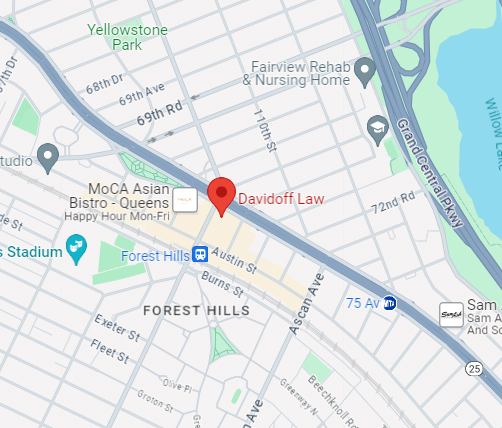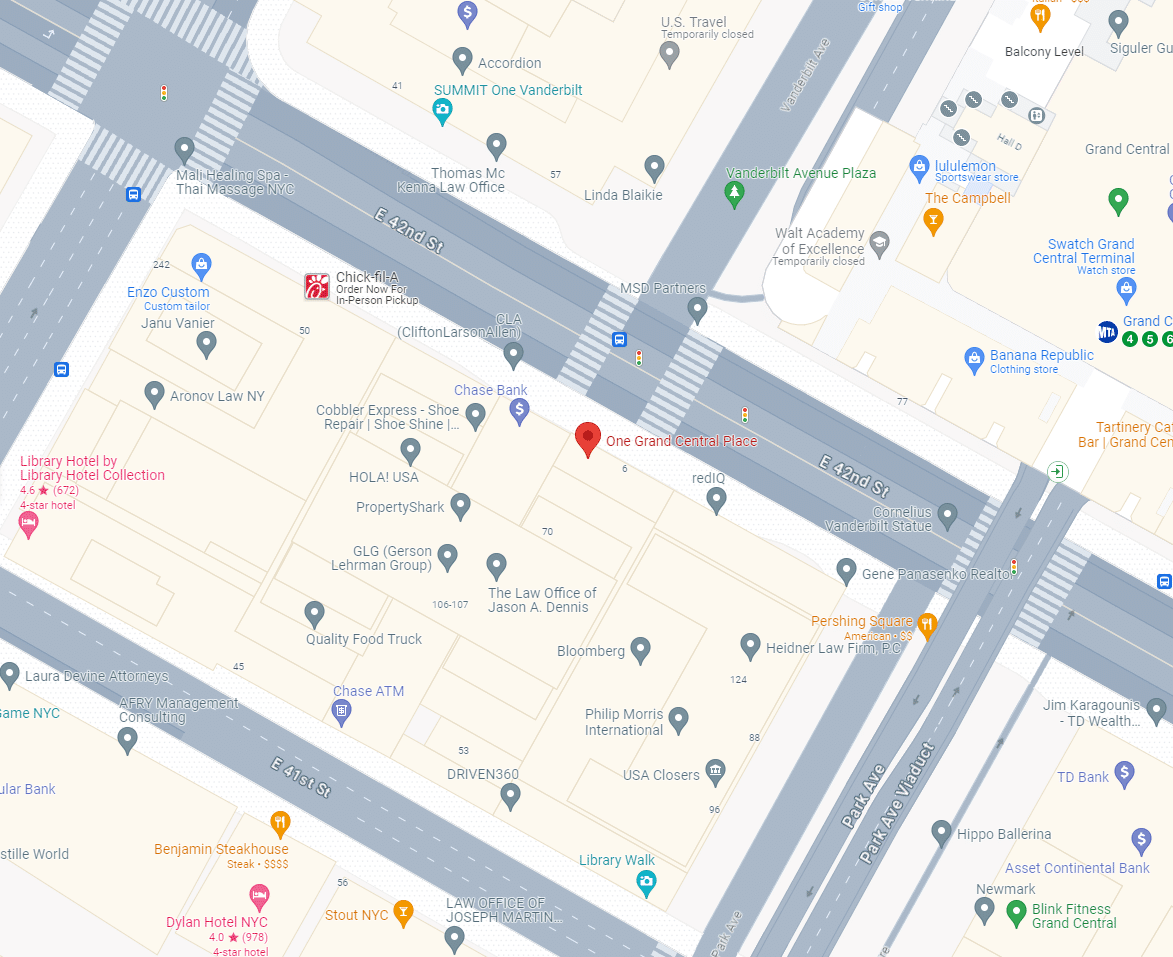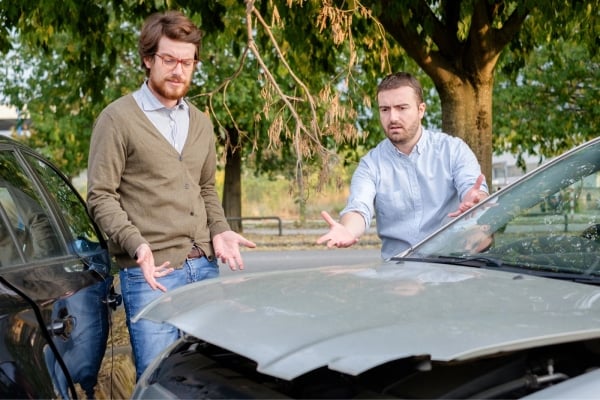
If you get into a car accident, you'll probably hear the word fault, a lot. Assigning fault in a car accident is important because it affects how damages are covered and insurance claims are processed. Fault determines who was responsible for causing the accident and, therefore, who must pay for the damages incurred. This can include costs for vehicle repairs, medical bills, and other related expenses. Knowing how fault is determined can help drivers involved in an accident know what to expect during the claims process.
Table of Contents
A fault in a car accident is not always clear-cut and can involve complex legal considerations. New York is a no-fault state, which plays a major role in determining fault in your car accident state. Our Queens car accident lawyer at Davidoff Law Personal Injury Lawyers specializes in navigating these complexities. We advocate for the rights of accident victims. We can negotiate with car insurance companies, even in a no-fault car accident. Learn more about car accident faults below. Then, contact us to discuss your car accident claim.
Understanding Fault in Car Accidents
Fault in car accidents is based on the principle that someone did something they shouldn't have done or failed to do something they should have, leading to the accident. This could clearly violate traffic laws, such as running a red light. It also includes more nuanced situations, like failing to yield the right of way. Insurance companies play a huge role in determining fault by evaluating the accident's circumstances. Your car insurance company may see if the other driver is at fault for your auto accident.
Determining fault involves a thorough investigation into how the accident happened. Insurance companies will review police reports, witness statements, and any available video footage. They also consider the damage to the vehicles involved and any injuries sustained by the drivers and passengers. This process can be complicated and sometimes results in disputes over who is at fault.
The Concept of Negligence in Vehicular Collisions
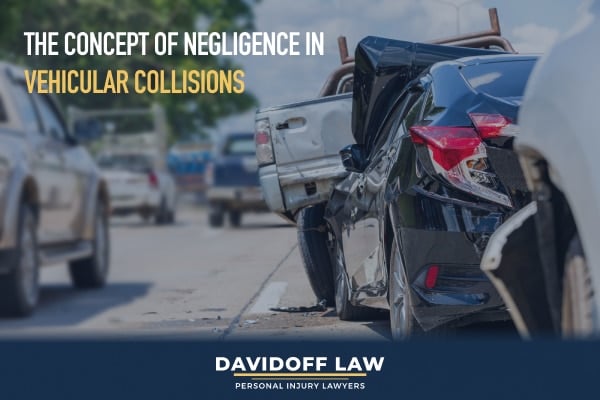
Negligence is a major factor in assigning fault in car accidents. It refers to a driver's failure to act with the level of care that a reasonably prudent person would have under similar conditions. For example, if a driver were speeding or texting before causing an accident, they would likely be found negligent and at fault.
To prove negligence, it must be shown that the driver had a duty to drive safely, breached that duty, and caused an accident and injuries. Every driver has this duty when they get behind the wheel. Proving breach of duty and causation is needed to establish fault in car accidents.
Key Factors in Determining Fault
- Violation of traffic laws. If drivers break a traffic law and accidents occur, they are typically found at fault. This includes speeding, running stop signs, and other violations.
- Driver statements. What the drivers involved say about the accident can influence fault determination. Admitting to being distracted or violating a traffic law can be key evidence.
- Witness testimonies. Witnesses can provide unbiased accounts of the accident, which can be necessary for determining fault.
- Video or photographic evidence. Dashcam footage or surveillance videos capturing the accident can provide clear evidence of what occurred and who is at fault.
- Physical evidence from the scene. The location of vehicle damage and skid marks on the road can indicate how the accident happened and help determine fault.
Evidence Used to Determine Fault
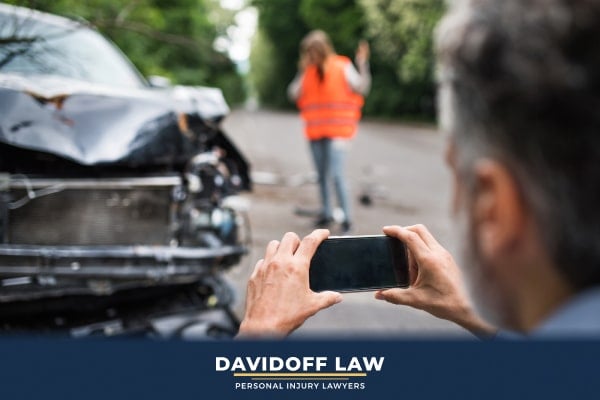
Evidence is required for determining fault in a car crash. A police report is always a key piece of evidence, including the officer's assessment of the accident and any citations issued. Videos of the crash scene, vehicle damage, and any obvious injuries are also important. Additionally, statements from the drivers involved, passengers, and witnesses can provide insight into how the collision occurred.
Insurance companies also use this evidence when evaluating claims. They may send an adjuster to assess the vehicle damage and review medical records for any injuries claimed.
Comparative and Contributory Negligence
Comparative and contributory negligence may impact how damages are awarded in cases where both parties share some fault. In states with comparative negligence laws, you can still recover damages even if you are partially at fault, but your percentage of fault reduces your compensation. Contributory negligence, however, may prevent you from recovering any damages if you're found to be even slightly at fault.
These concepts highlight the importance of accurately determining fault in a car accident. They can considerably impact the compensation accident victims receive. Knowledge of these principles and how they apply to your case is essential. They will impact your compensation.
How Shared Fault Affects Liability and Compensation
When a fault is shared in a car accident, it can make the recovery process more difficult. In comparative negligence, each party's compensation is adjusted based on their degree of fault. For example, if you are found to be 30% at fault for a crash, your compensation would be cut by 30%. This system allocates damages more fairly based on each party's responsibility for the accident.
Shared fault also affects negotiations with insurance companies. They will carefully assess the evidence to determine each party's level of fault and adjust their settlement offers accordingly. It's important for accident victims to understand how shared fault may impact their compensation and to seek legal assistance to navigate these negotiations.
The Impact of Fault on Insurance Claims
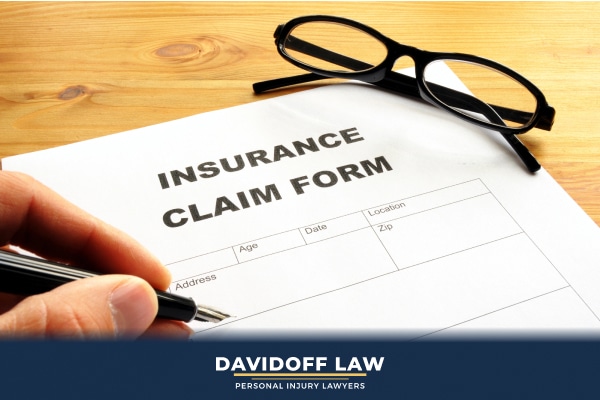
Fault plays a key role in filing insurance claims after a car accident. The insurance company of the driver found at fault is generally responsible for covering the damages. This includes property damage to the vehicles involved and medical expenses for any catastrophic injuries sustained. Disputes over fault, on the other hand, can delay the claims process and may require legal intervention to resolve.
Insurance companies conduct investigations to determine fault. They consider the evidence available, including police reports, witness statements, and other relevant information. Being aware of how insurance companies determine fault can help you prepare your claim and anticipate any challenges that may arise.
New York Is a No-Fault State
New York is a "no-fault" state, meaning that after a car accident, your own car insurance coverage (specifically your Personal Injury Protection or "PIP" coverage) pays for your medical expenses, lost earnings, and certain other reasonable and necessary expenses, regardless of who caused the accident.
This system is designed to ensure prompt benefit payments and reduce the need for litigation. Under this no-fault system, you do not have to prove that the other driver was at fault. You can still receive compensation for these expenses. However, there are limitations on suing for pain and suffering under this system. It primarily covers economic losses. So, why does fault matter if your insurance company pays for your damages?
If your damages exceed the limit of your insurance company's liability, you may still want to pursue the other driver.
When You Can Pursue the Other Driver for Personal Injuries
Despite New York's no-fault laws, you can still pursue the at-fault driver under certain conditions. If you suffer serious injuries as defined under New York law, such as major disfigurement, a fractured bone, or a permanent limitation of use of a body organ or member, you may step outside the no-fault system and file a lawsuit against the at-fault driver.
This allows you to seek compensation for pain, suffering, and other non-economic damages. These might not be covered under the no-fault system. In addition, if the economic losses exceed the basic no-fault coverage limit, you can sue the at-fault driver to recover those additional costs. We can help you with your car accident case.
Key Tips to Follow After a Queens Car Accident
- Call the police immediately. A police report is an important document for insurance claims and legal proceedings. Explain the crash honestly, but do not admit fault.
- Take photos of the accident scene. This includes damage to all vehicles, visible injuries, and road conditions.
- Exchange information with the other driver. Get their contact information and insurance information, but avoid discussing fault at the scene.
- Seek medical attention. You need to see a doctor, even if you feel okay.
- Report the accident to your insurance company. Doing so promptly is important, but be cautious about admitting fault.
- Gather witness contact information. Witnesses can provide valuable statements about how the accident occurred.
- Consult with a car accident lawyer. Legal advice is indispensable. It can protect your rights.
Importance of Legal Representation in Fault Disputes
Legal representation is important when a fault in a car accident is disputed. An auto accident lawyer can gather and present evidence. We can negotiate with insurers and represent you in court. We understand the nuances of fault determination and can advocate for your best interests. Our lawyers make sure that you receive fair compensation for your damages.
Without legal representation, the claims process will only be more challenging. This is true if the other driver or their insurance company disputes your accident account. A skilled attorney can ensure you receive fair options. We can help you overcome the challenges of proving fault and recovering damages.
Contact Our Queens Car Accident Lawyer at Davidoff Law Personal Injury Lawyers
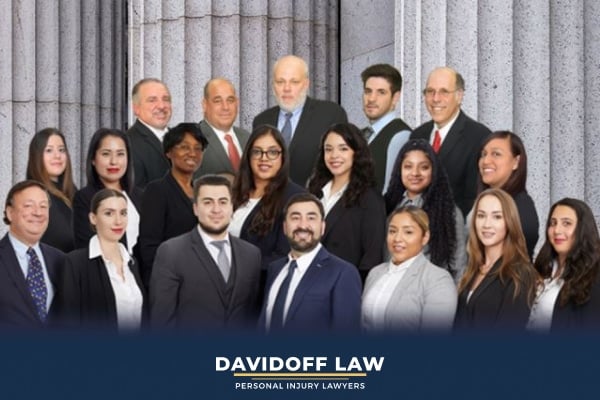
If you’ve been involved in a car accident in Queens, don't navigate the aftermath alone. Davidoff Law Personal Injury Lawyers offers a free consultation. Our skilled car crash lawyers can assess your case, explain your legal avenues, and be with you through the process of recovering compensation. We're committed to advocating for your rights. When an accident occurs, we can negotiate with the auto insurance adjuster and pursue the at-fault driver. Contact us today for a free case consultation.


